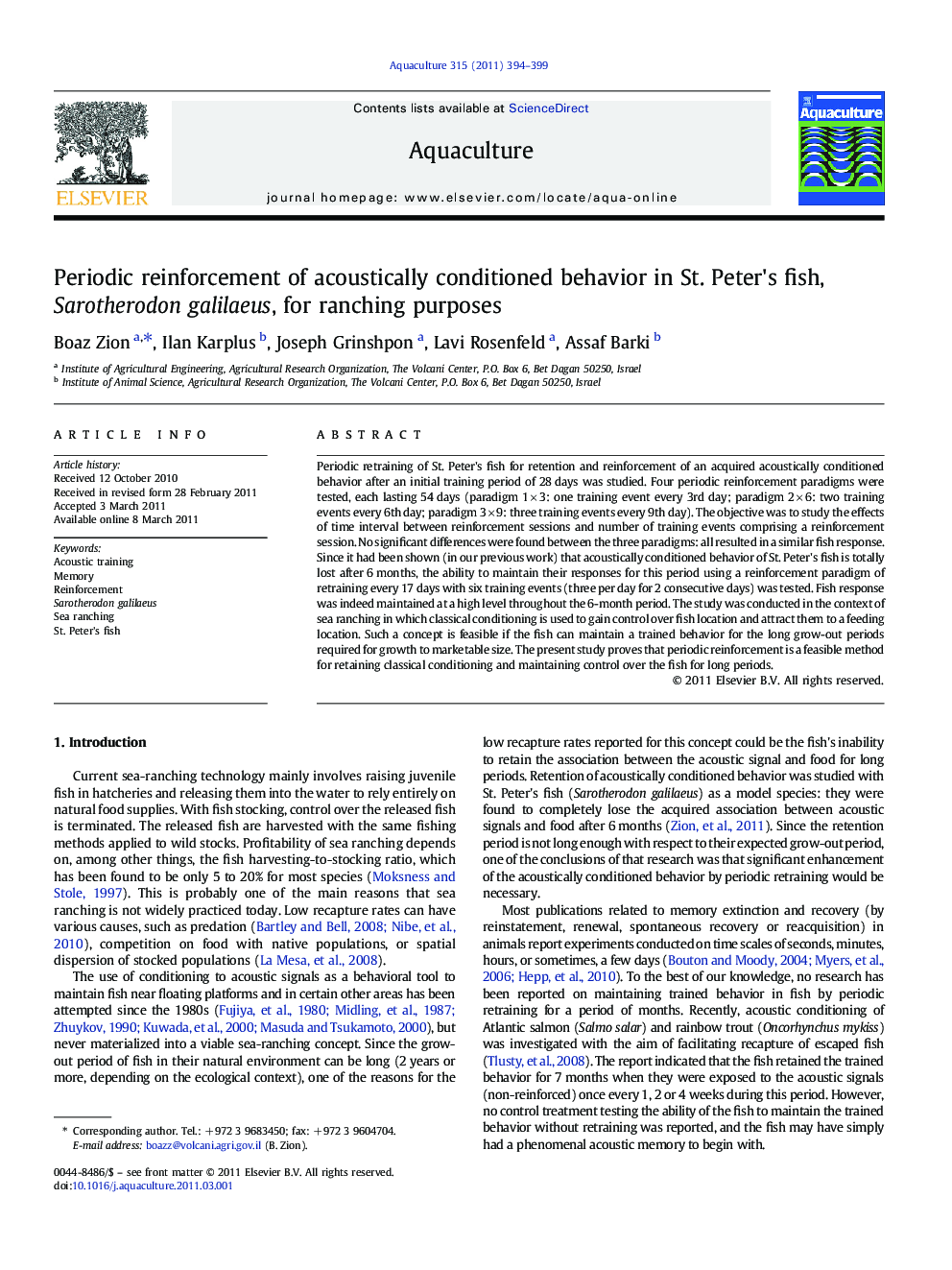| Article ID | Journal | Published Year | Pages | File Type |
|---|---|---|---|---|
| 2423168 | Aquaculture | 2011 | 6 Pages |
Periodic retraining of St. Peter's fish for retention and reinforcement of an acquired acoustically conditioned behavior after an initial training period of 28 days was studied. Four periodic reinforcement paradigms were tested, each lasting 54 days (paradigm 1 × 3: one training event every 3rd day; paradigm 2 × 6: two training events every 6th day; paradigm 3 × 9: three training events every 9th day). The objective was to study the effects of time interval between reinforcement sessions and number of training events comprising a reinforcement session. No significant differences were found between the three paradigms: all resulted in a similar fish response. Since it had been shown (in our previous work) that acoustically conditioned behavior of St. Peter's fish is totally lost after 6 months, the ability to maintain their responses for this period using a reinforcement paradigm of retraining every 17 days with six training events (three per day for 2 consecutive days) was tested. Fish response was indeed maintained at a high level throughout the 6-month period. The study was conducted in the context of sea ranching in which classical conditioning is used to gain control over fish location and attract them to a feeding location. Such a concept is feasible if the fish can maintain a trained behavior for the long grow-out periods required for growth to marketable size. The present study proves that periodic reinforcement is a feasible method for retaining classical conditioning and maintaining control over the fish for long periods.
